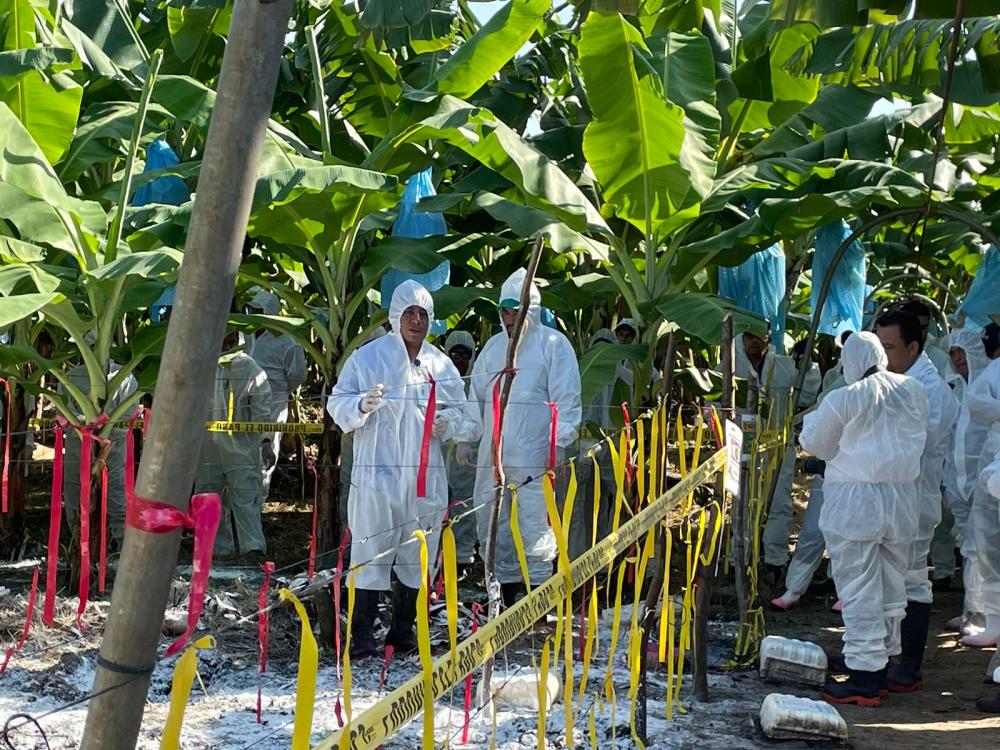International organizations, the private sector and producers from Ecuador, Colombia, Costa Rica and Mexico share their experiences in managing Fusarium TR4, a pest that poses a threat to the banana industry and global food security

Mexico City, August 25, 2023 (IICA). Representatives of the private sector and international organizations, and producers from Ecuador, Colombia, Costa Rica and Mexico, shared their experiences with regard to good practices in banana management and the prevention and control of Fusarium oxysporum cubense Tropical Race 4 (Foc TR4), a pest that poses a threat to the future of banana growing. They also underlined the importance of all food industry stakeholders reaching agreement on joint actions to tackle and manage the pathogen.
At a forum on the subject, organized by the Global Alliance Against TR4 and the Inter-American Institute for Cooperation on Agriculture (IICA), panel members were agreed as to the importance of focusing the sector’s efforts on prevention and training, plant breeding to mass-produce new varieties of disease-resistant bananas, and the development of control methods to increase plant resistance and prevent transmission of the fungus.
The Tropical Race 4 (TR4) strain of the Fusarium fungus attacks plants through their roots and causes a lethal wilt. The disease can spread to new areas through the movement of infected planting materials or contaminated soil particles attached to shoes, clothing, farm tools, and vehicles, and contained in drainage and irrigation water.
In Mexico, the spread of this pathogen is a very serious threat, since banana cultivation is one of the most profitable and widely distributed agroecosystems, with plantations operating in 15 of the country’s states.
Diego Montenegro, IICA Representative in Mexico, said that due to the importance of banana production, all food chains could be at risk unless joint actions are taken, making the involvement of all food industry stakeholders essential to share experiences in controlling the fungus.
“It is vital to create alliances and spaces so that the different stakeholders can communicate and share their experiences. Collaborative efforts are the only way to combat this scourge affecting regional banana production,” he commented.
Gabriel Rodríguez Marqués, Executive Secretary of the Global Alliance Against TR4, offered an overview of the Fusarium TR4 situation around the world and stressed the importance of training small farmers in disease control methods that would improve productivity.
“Acceptance of the role of modern genetic science in food production is important, as is the training of small farmers in disease control methods to improve the productivity of all crops. Better biosecurity on farms is also essential for all crops as climate change drives the spread of diseases,” he said.
Marianella Ubilla, President of the Board of the Association of Banana Exporters of Ecuador (AEBE), mentioned the need to protect banana plantations in her country with a high risk of becoming infected with the TR4 fungus, given the free movement of persons across the borders with Colombia and Peru. She emphasized the need for financial products to enable producers to combat the pest.
Román Octavio Pacheco Gómez, a specialist from the Soconusco Agricultural Association of Banana Growers (Chiapas, Mexico), underscored the situation of banana plantations with a high risk of infection with Foc TR4 in his region, given the free movement of persons across the border with Guatemala.
Sebastián Zapata, Director of the Banana Research Center (CENIBANANO) of the Colombian Banana Growers Association (AUGURA) spoke about the management of banana plantations affected by Foc TR4 in Colombia, while Jorge Sauma, General Manager of Costa Rica’s National Banana Corporation (CORBANA) explained the current state of banana plantations with a high risk of infection in his country.
More information:
Institutional Communication Division.
comunicacion.institucional@iica.int
Rocio Campuzano
Agricultural Health Specialist
rocio.campuzano@iica.int